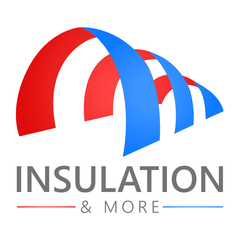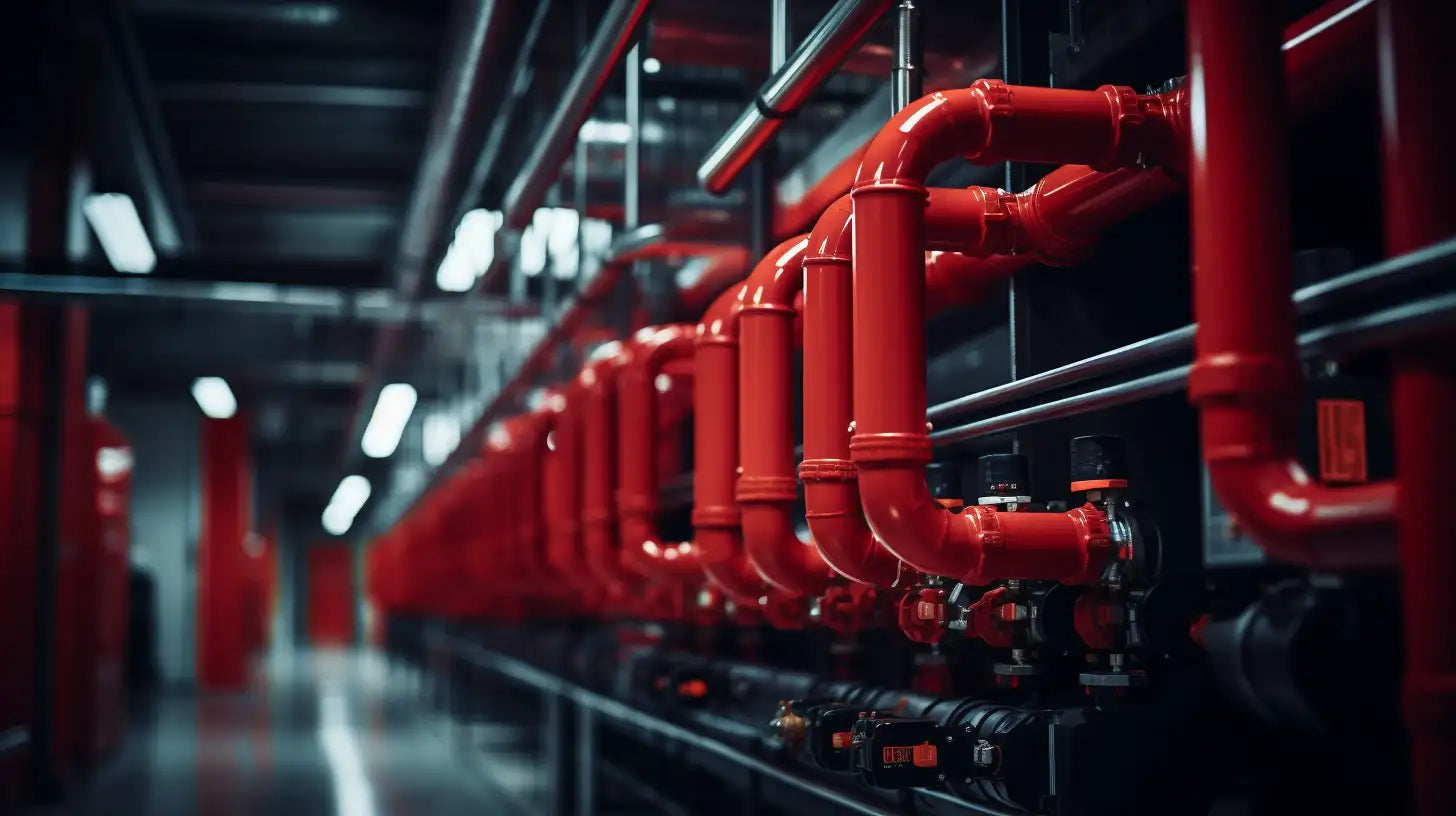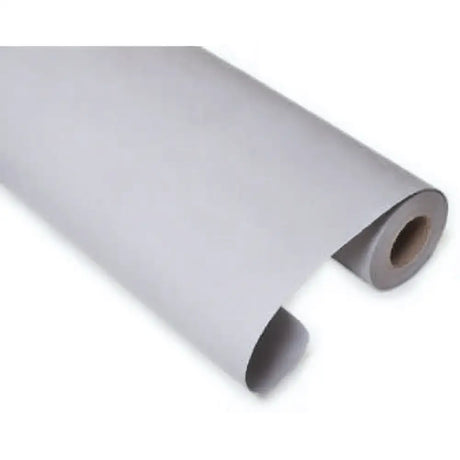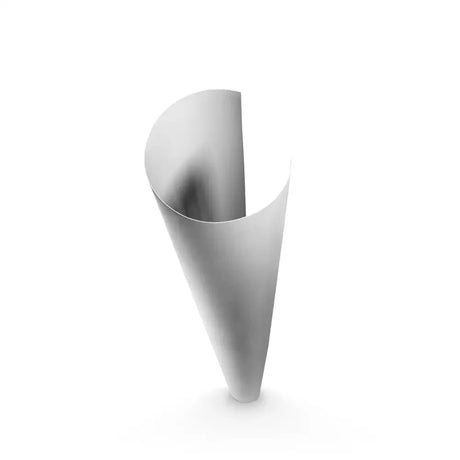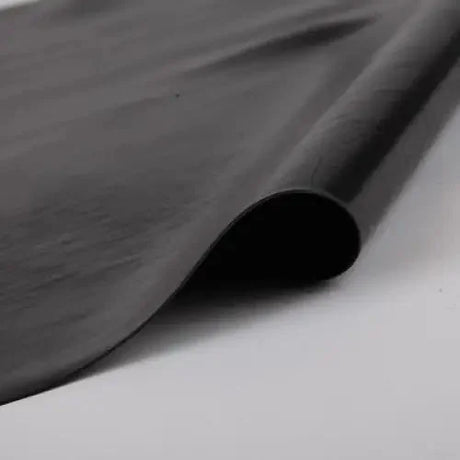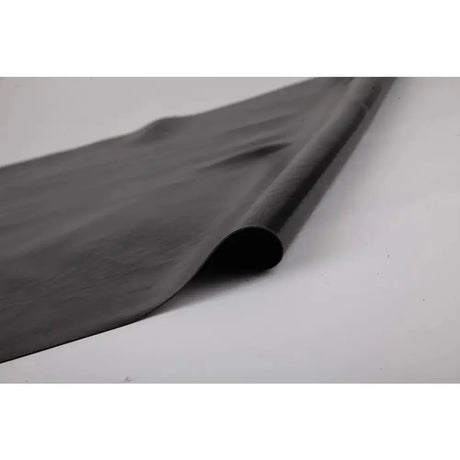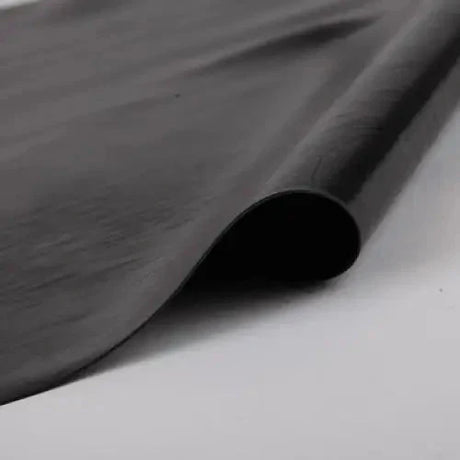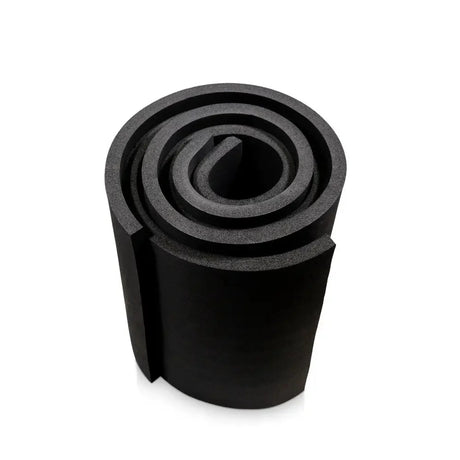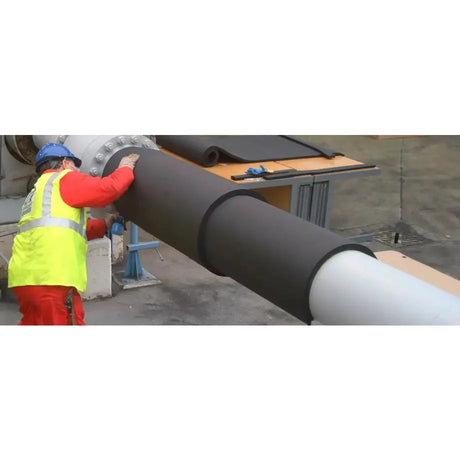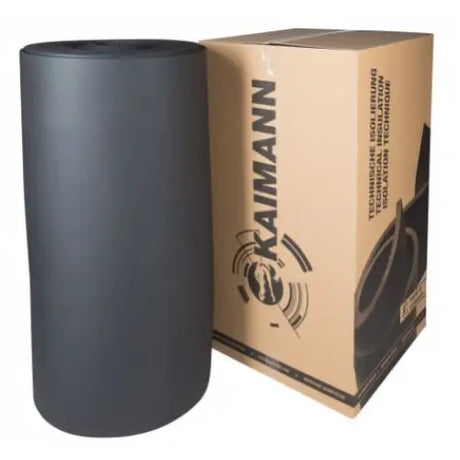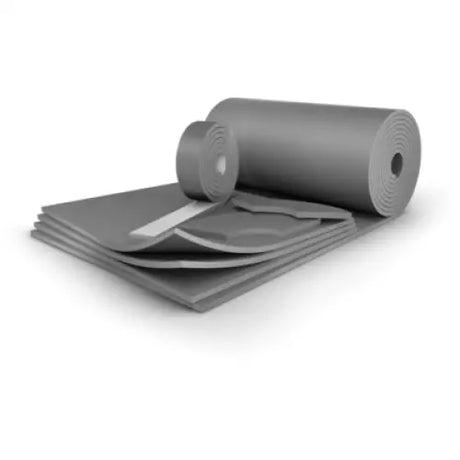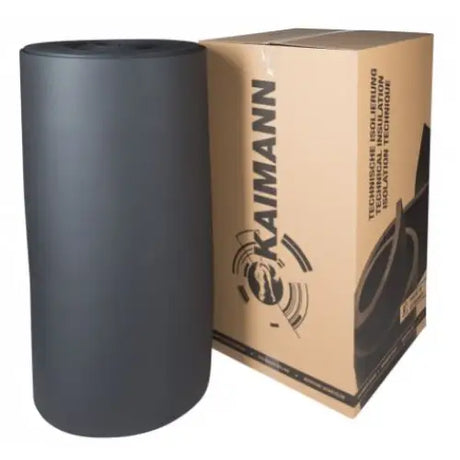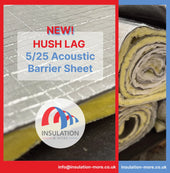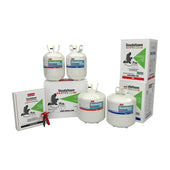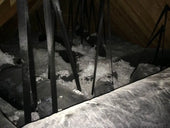Table of Contents
- Introduction to Pipe Insulation Standards
- Key Organizations and Regulatory Bodies
-
Main Pipe Insulation Standards and Regulations
- Building Regulations Part L - Conservation of Fuel and Power
- EN 12828 - Heating Systems in Buildings
- PAS 67 - Installation of Thermal Insulating Materials
- BS 5422 - Specification of Thermal Insulating Materials
- BS 5970 - Thermal Insulation of Pipework and Equipment
- GG 85 - Domestic Hot Water Cylinders and Pipes
- HSE Guidance on Corrosion Under Insulation (CUI)
- Types of Standards and Requirements
- Compliance and Enforcement of Standards
- Benefits of Following Insulation Standards
- Recent Insulation Regulations Changes and Updates
- Conclusion
Effective insulation is crucial for pipework systems in commercial, industrial, and residential settings. Insulation controls heat loss, resists corrosion, prevents condensation, and provides personnel protection. To ensure the proper installation and performance of pipe insulation, the UK has developed an extensive set of standards and regulations overseen by various governmental and industry organizations.
This guide provides a detailed overview of the key pipe insulation standards in the UK, the organizations involved, what the regulations cover, benefits of compliance, recent updates, and more. Understanding the standards landscape enables facility owners, managers, designers and insulation installers to specify and install compliant, high-performing insulation systems.
Introduction to Pipe Insulation Standards
Pipe insulation standards and regulations in the UK cover a wide range of requirements:
-
Insulation materials - Specifications for materials like mineral wool, elastomeric foam, plastic foams, calcium silicate, etc.
-
Insulation thickness - Minimum insulation thickness mandated for pipe diameters and temperature ranges.
-
Installation procedures - Proper techniques for securing, sealing and covering insulation materials.
-
Testing and certification - Standards for evaluating insulation product performance through testing.
-
Health and safety - Requirements to minimize risks like fire hazards, corrosion, surface condensation, and other dangers.
-
Energy efficiency - Stricter limits on heat loss to reduce energy waste and carbon emissions.
Compliance with UK pipe insulation standards is required for new building construction. It is also increasingly encouraged for existing buildings through building efficiency retrofit programs. Correct insulation benefits public health and safety while lowering environmental impact and operating costs.
Key Organisations and Regulatory Bodies
Various governmental departments and trade organisations shape UK pipe insulation regulations and codes of practice:
Building Research Establishment (BRE)
The BRE is an independent research organisation that publishes widely used standards, testing methods and reports for the construction industry. Their standards help meet building regulations and include:
- BR 443 - Conventions for Calculating Linear Thermal Transmittance and Temperature Factors
- BRE IP 1/06 - Assessing the Effects of Thermal Bridging at Junctions and Around Openings
British Standards Institution (BSI)
The BSI develops and publishes key insulation standards used in the UK and internationally. Relevant BSI standards include:
- BS 5422 - Method for Specifying Thermal Insulating Materials on Pipes, Tanks, Vessels
- BS 5970 - Code of Practice for Thermal Insulation of Pipework and Equipment
- BS 6700 - Specification for Design, Installation, Testing and Maintenance of Services Supplying Water
Chartered Institution of Building Services Engineers (CIBSE)
CIBSE publishes guidance for building services engineers. Their guidelines cover HVAC, plumbing, lighting and other systems. Related publications include:
- CIBSE Guide B4 - Hydraulic pipe sizing
- CIBSE Guide B2 - Ventilation and ductwork
- CIBSE Guide M - Maintenance engineering and management
Health and Safety Executive (HSE)
The HSE develops regulations and guidance to minimize workplace health and safety risks. Their guidelines cover insulation standards like:
- HSG47 - Avoiding Danger from Under insulation Corrosion
Main Pipe Insulation Standards and Regulations
The standards and regulations below form the core framework governing insulation specification, installation and maintenance for UK pipe systems:
Building Regulations Part L - Conservation of Fuel and Power
Part L of the UK Building Regulations sets standards for conserving fuel and power. It mandates minimum energy efficiency requirements for new and existing buildings.
Requirements related to pipe insulation include:
- Insulating primary hot water pipes to minimize heat loss
- Insulating primary heating pipes in unheated spaces
- Testing to prove insulation thermal performance
- Following best practice installation guidance
EN 12828 - Heating Systems in Buildings
EN 12828 is a European standard that specifies technical requirements for designing and installing heating systems in buildings. The standard covers insulation for heating system pipework.
Key insulation requirements include:
- Using insulation material suitable for operating temperatures
- Ensuring insulation is continuous through hangers and supports
- Preventing water vapour transmission and infiltration
- Allowing for expansion and contraction of pipes
- Following manufacturer guidelines for installation
PAS 67 - Installation of Thermal Insulating Materials
PAS 67 is a Publicly Available Specification published by the BSI covering installation procedures for thermal insulation in buildings. It gives best practices for securing, finishing and sealing insulation.
PAS 67 outlines procedures like:
- Cutting insulation materials properly to achieve tight joints
- Applying adhesives, tapes and vapour barriers
- Finishing insulation at supports, flanges and hangers
- Sealing insulation at penetrations to avoid gaps
BS 5422 - Specification of Thermal Insulating Materials
BS 5422 specifies the key properties and performance criteria for thermal insulation materials used on pipes, ducts, tanks and equipment. It covers:
- Classification of materials like mineral fibre, cellular glass, foamed plastic etc.
- Thermal conductivity limits by material type
- Allowable operating temperatures
- Water vapour transmission rates
- Compressive strength and fire performance
BS 5970 - Thermal Insulation of Pipework and Equipment
BS 5970 outlines recommendations for thermally insulating pipework, vessels and equipment in non-domestic buildings and industrial facilities. It covers materials, design, installation and maintenance procedures.
Topics addressed include:
- Identifying service conditions like temperature, corrosion risks
- Specifying materials compatible with application
- Calculation methods for insulation thickness
- Weatherproofing and cladding requirements
- Corrosion under insulation prevention
- Testing insulation workmanship
GG 85 - Domestic Hot Water Cylinders and Pipes
Department for Environment, Food & Rural Affairs (DEFRA) guidance for insulating domestic hot water cylinders and pipes in dwellings. It specifies insulation thickness based on cylinder size and pipe diameter.
GG 85 also covers:
- Using insulation rated for minimum 90°C service temperature
- Fixing insulation tightly to cylinder with no gaps
- Insulating valves, fittings and expansion vessels
HSE Guidance on Corrosion Under Insulation (CUI)
The Health and Safety Executive (HSE) has extensive guidance covering insulation standards to prevent corrosion under insulation (CUI) in workplaces.
Recommendations include:
- Using fireproofing only when also designed to prevent CUI
- Ensuring water vapour barrier effectiveness
- Sealing seams and joints completely
- Providing sufficient air gap when cladding over insulation
Types of Standards and Requirements
UK pipe insulation standards broadly fall into the following categories:
Insulation Materials and Properties
Standards like BS 5422 specify the classifications, physical properties, thermal performance criteria and limits for insulation materials. Important factors covered include:
- Thermal conductivity - Maximum thermal conductivity required for service temperatures
- Temperature range - Minimum and maximum temperatures the material can withstand
- Water absorption - Limits on moisture absorption like water vapour transmission rate
- Fire performance - Reaction to fire ratings based on testing
- Strength - Minimum compressive strength
Insulation Thickness Requirements
Certain standards mandate the minimum insulation thickness required based on the pipe size and temperature. This aims to limit heat loss to an acceptable level.
For example, BS 5970 provides detailed thickness tables while GG 85 simplifies it for domestic hot water pipes. EN 12828 references following manufacturer guidelines.
Installation and Maintenance Procedures
Proper installation and maintenance ensures insulation delivers its intended performance over its service life. Standards like PAS 67 give best practice procedures for:
- Securing insulation with adhesives or mechanical fasteners
- Achieving tight seams and joints
- Sealing penetrations through insulation
- Preventing damage during handling and installation
- Inspecting insulation and performing repairs
Testing and Performance Verification
Standards require testing insulation materials and the installed insulation work to verify thermal conductivity, workmanship quality and other performance factors. This includes:
- Testing insulation samples for properties like thermal conductivity per BS 5422
- Inspecting installed insulation for Continuity of insulation - no gaps, voids, compression
- Checking proper sealing at joints, seams and hangers
- Diagnostic testing like thermographic inspection
Health and Safety Requirements
Insulation standards aim to reduce risks to human health and safety. This covers:
- Limiting flammability through reaction to fire testing
- Preventing corrosion under insulation with proper barriers
- Avoiding water retention and mold growth
- Guidelines for handling insulation materials safely
Compliance and Enforcement of Standards
Several mechanisms enforce compliance with UK pipe insulation standards:
Building Regulations Approval for New Builds
All new building construction must meet Building Regulations requirements including insulation standards. Local authorities review design submissions and conduct onsite inspections to verify compliance before issuing completion certificates.
Installer Certification Requirements
PAS 67 requires that insulation installers obtain a valid certificate demonstrating their training and competency in correctly installing insulation. Certification raises the standards of insulation workmanship.
Inspections of Existing Buildings
Local councils may request testing and inspections when major renovations occur in existing buildings to check they meet updated building codes. Retrofits like external wall insulation require similar compliance checks.
Penalties for Non-Compliance
Building owners face fines and enforcement actions if insulation installation fails to meet applicable regulations, whether through improper materials, insufficient thickness or poor workmanship.
Benefits of Following Insulation Standards
Beyond basic legal compliance, adhering to UK pipe insulation standards provides many tangible benefits:
Energy and Cost Savings
Properly insulated pipes minimize wasted heat, reducing energy consumption. This lowers fuel costs for building owners. Effective insulation also prevents having to oversize heating equipment.
Condensation and Leak Prevention
Insulation limits surface condensation on cold water pipes and ducts. It keeps water service temperatures warm enough to avoid freezing and leaks. Proper sealing prevents water ingress into insulation.
Corrosion Protection
Compliant insulation systems maintain pipework at temperatures that avoid exterior surface corrosion. They also provide effective vapor barriers against interior corrosion.
Noise Reduction
Insulation dampens noise transmission from flowing liquids, valves and mechanical equipment for a quieter indoor environment.
Safety and Compliance
Insulation improves fire safety and reduces health hazards from mold and bacteria. It also provides peace of mind that systems meet all UK requirements.
Recent Insulation Regulations Changes and Updates
As technologies and best practices evolve, insulation standards are continually updated. Recent changes include:
Tougher Standards for New Builds
Building Regulations and EU directives now mandate higher energy performance for new construction. This requires improved insulation to curb wasted heat.
Retrofit Focus on Existing Buildings
Programs like the Green Deal have increased focus on upgrading insulation in Britain's old, leaky building stock to enhance efficiency.
New Materials and Techniques
Advancing insulation materials like aerogels and vacuum insulation panels have enabled new standards for ultra-low thermal conductivity.
Stricter Condensation Control
Amendments to the Building Regulations boost requirements for limiting surface condensation risks, a hazard insulation helps address.
Workmanship and Training
PAS 67 and other guidelines have strengthened contractor training and workmanship provisions to ensure proper installation.
Conclusion
Specifying and installing effective pipe insulation is key for energy efficiency, safety and cost savings in UK buildings. Organizations like BRE, BSI and CIBSE develop the standards needed to drive insulation material and installation quality.
Facility managers must follow regulations mandating insulation to minimize wasteful heat loss in heating pipes. Compliance futureproofs buildings against tighter regulations. Workmanship certification and oversight ensure insulation performs to its potential.
With insulation being a vital tool in UK carbon reduction efforts, its standards will continue advancing. Staying current on the latest best practices, codes and standards allows industry professionals to maximize the benefits of pipe insulation.
What are the main pipe insulation standards in the UK?
The key standards are Building Regulations Part L, EN 12828, PAS 67, BS 5422, BS 5970, and HSE guidance on preventing corrosion under insulation.
Who sets pipe insulation standards in the UK?
Organizations like BRE, BSI, CIBSE and HSE are involved in developing insulation standards and regulations in the UK.
What do pipe insulation standards cover?
The standards cover insulation materials, thickness, installation procedures, testing, health and safety, and energy efficiency requirements.
Why follow pipe insulation standards?
Following standards ensures effective insulation, energy savings, prevents condensation and corrosion, and improves safety.
Do new builds have to meet insulation standards?
Yes, new builds must comply with Building Regulations including requirements for pipe insulation.
What if insulation work doesn't meet standards?
Building owners can face fines and enforcement actions if insulation installation fails to meet applicable regulations.
Do installers need certification?
Yes, PAS 67 requires insulation installers obtain certification demonstrating proper training and competency.
How are insulation standards enforced?
Building control bodies review designs, inspect installation work, and can penalize non-compliance.
Have the standards changed recently?
Yes, standards have strengthened for new builds and existing buildings. New materials are also covered.
Where can I find UK pipe insulation standards?
The main standards are available from BSI, BRE, and CIBSE. HSE guidance is on their website.
Do the standards apply to industrial facilities?
Yes, standards like BS 5970, HSE corrosion prevention guidance, and others cover industrial insulation.
Who ultimately enforces the standards?
Local authority building control bodies have power to enforce Building Regulations and insulation standards.
How often are the standards updated?
Standards are continuously updated, but major revisions may occur every few years or when regulations change.
